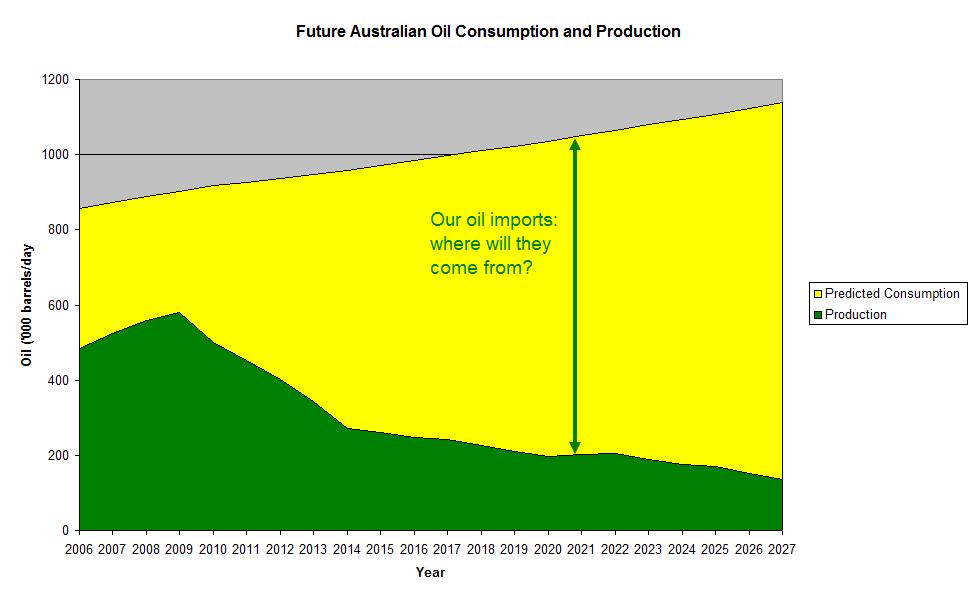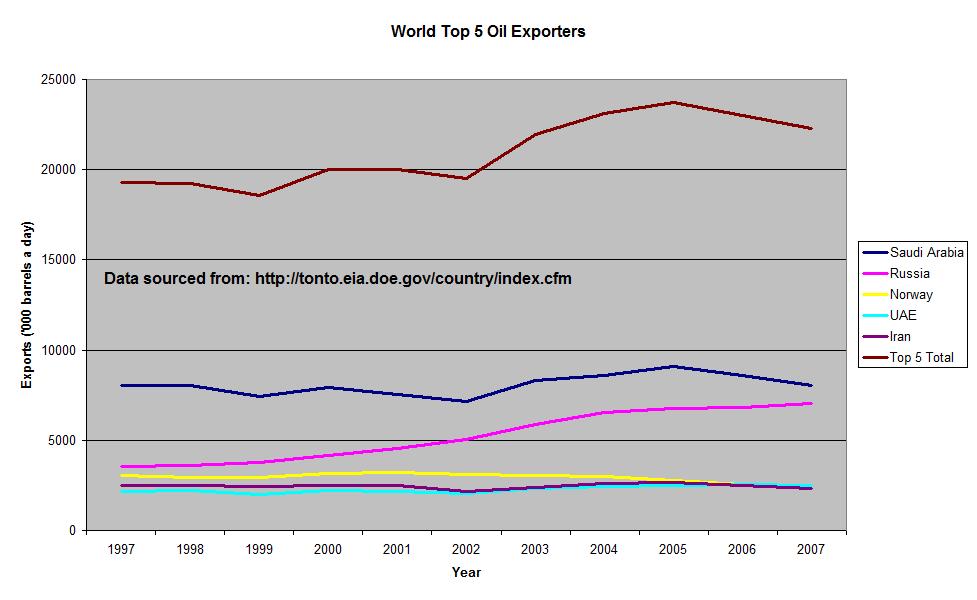Australia has a reputation as being the “lucky country”. I am a firm believer that “luck” is simply where preparation meets opportunity. In other words, being lucky is no accident. If we are to remain the “lucky country” however, we need to adapt as circumstances change. Nowhere is this more pertinent than in adapting to Australia’s future oil supply.
Before we start considering this issue, it is vitally important to understand why energy is so important to our economy. Energy is important because it allows us to do work. Work is important because it is the basis of all economic activity. So the more energy we have, the more work that can be done and the greater the level of economic activity. If we continue to expand the amount of energy that is available then so too will the level of economic activity, resulting in what we call growth.
Of course, the opposite situation is also true. If the available energy declines, the amount of work that can be done declines as does economic activity. The result is economic contraction or what is commonly called a recession or depression.
Advertisement
Oil just happens to be both Australia’s and the world’s primary energy source. With this in mind, let’s have a look at Australia’s likely future oil supply.
Chart one details ABAREs projection for Australian oil consumption and Geoscience Australia’s predictions of Australian oil production. The chart shows that Australia will become increasingly dependant upon oil imports, potentially reaching a reliance of 85 per cent by 2025.

Chart One: Australia’s projected oil consumption and production. Data sourced from here (PDF 35KB).
Where will this oil come from? There are a number of factors that make it unlikely that Australia will be able to import this quantity of oil. These include:
- continued growth in demand for oil, particularly from nations such as China and India;
- the majority of the world’s oil producing nations are past their domestic peak in oil production. This includes the majority of OECD nations which are net oil importers and will have an increasing call on oil imports as their domestic production declines; and
- many oil exporting nations are also past their peak in oil production. Combined with increased domestic consumption, this results in a rapid decline in oil exports.
Advertisement
The net result is that the quantity of oil available for Australia to import in the future will decline. Chart two, prepared using data from the US Government’s Energy Information Administration (EIA) shows that oil exports from the world’s top five oil exporters are already in decline, as are the exports from those countries that Australia imports the majority of its oil from (table one).

Chart two: oil exports from the world’s top five oil exporters
Discuss in our Forums
See what other readers are saying about this article!
Click here to read & post comments.
40 posts so far.